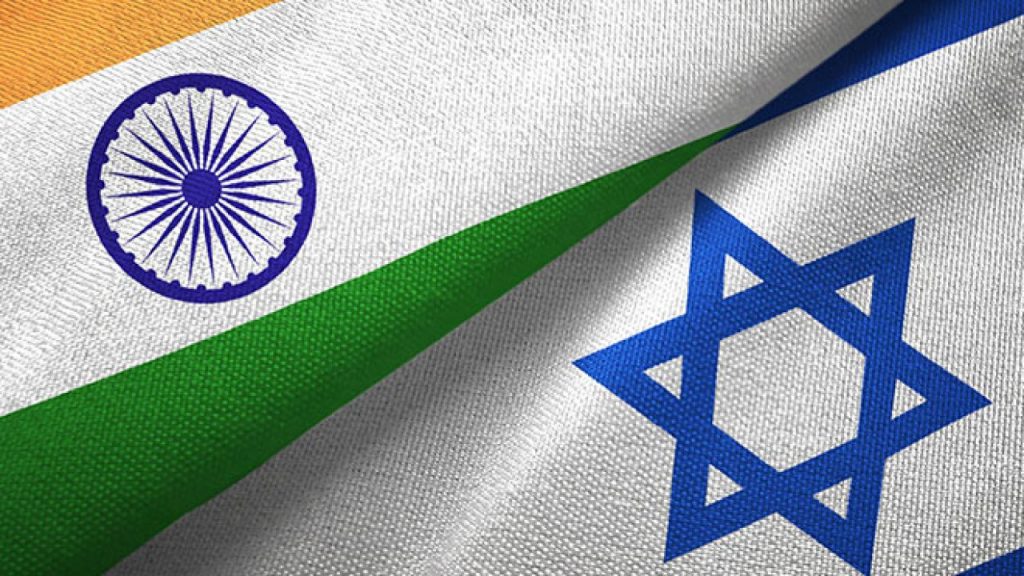Dr Padmalochan Dash
To realise the Water Mission envisaged by Prime Minister Narendra Modi it is important to give official sanction to an autonomous “Institute of Indo-Israel Strategic Partnership in Water”. It is believed that the proposed institute can be a catalyst in achieving India’s water security objectives.
For precise reasons, advanced countries have notified Water Infrastructure as critical. India must follow suit, and take the requisite methods and implementing agencies into action to protect India’s vast water infrastructure and water bodies both natural and man-made before their downfall.
In the face of rising water scarcity, the issue of water security is now one of the main focus areas. Factors like different types of pollution, climate change, population growth, and groundwater depletion are putting pressure on water resources making water management a big challenge. To overcome this, the country requires suitable technological interventions. It is argued here that by entering into a projected institutionalised water partnership with Israel, India can attain this objective.
The prospective domains
There are areas where the prospects of Indo-Israel water cooperation remains high. These include the areas of water conservation, water recycling, integrated water infrastructure in the field of irrigation, advanced transportation and networking models for drinking water, advanced water practices, and building a sustainable water ecosystem. These are some of the critical areas, which demand promising research and innovation.
Restoration of water ecosystem: At the global level, freshwater ecosystems are subject to multiple anthropogenic threats, and restoration initiative is important to break the impending ecological crisis and protect the biodiversity for the future generations to sustain. Likewise, the creation of a Modern Water Infrastructure System is the need of the hour, as it can directly contribute to the enhancement and restoration of the water ecosystem. Further, ‘preservation of water bodies’ and ‘restoration of water ecosystem’ are two important areas requiring specific focus and “critical desalination initiative (CDI)”.
Critical desalination initiative: There is a pressing need for curtailing the pressure on freshwater reserve; and, as an alternative, it requires harnessing water through the desalination process. If sea water harvesting is catalysed and subsequently channelised for the regular household, industrial and agricultural usage, it can help minimise such pressure. India, having about 7,500 km of coastline with access to abundant seawater, provides a huge potential for CDI. It is envisioned that the CDI can enhance the green water inventiveness, thus fulfilling the impending water deficiencies.
Technology acquisition
The field of water management necessitates domain knowledge, precise technologies, and the already implemented confrère of efficacious proficiencies. Beyond hesitancy, it is recognised that Israel has been excelling with technological solutions and innovations and has emerged as the true world leader in the field of water management and water recycling. It generates state-of-the-art water infrastructure and alternative sources of water. By adopting strategic water partnership with Israel, India can greatly benefit from Israel’s best water practices.
Areas requiring technological intervention: Important aspects such as water efficiency, water assessment, monitoring, measurement and management, wastewater treatment, water recycling and reuse, groundwater assessment and recharge, real-time detection and situational awareness, accurate water flow data, drip irrigation, and precise agro-water solutions are some of the areas, where India needs to undertake deep exploration of enhanced proficiency. Israel is in possession of these and can help India in fulfilling its requirements.
Strategic partnership
While, the Bundelkhand water management project, the Indo-Israeli Agricultural Project (IIAP), and the Israeli-given drip irrigation technology are some of the starters; Israel is keen to further its offer for large-scale solutions to alleviate water problems in India. During the Union Minister of Jal Shakti’s Israel visit to attend the “WATEC” event, it was realised that with necessary stimulating incentives from the Government of India, Israel’s expertise can bid the finest intervention into India’s water projects and ensure their flawless set-up. Israel has been in the process of identifying joint areas of undertakings and is leading the water solution projects in India. Now, it is India’s responsibility to provide the right platform and allocate necessary resources so that the incubation as well as the implementation of large-scale Indo-Israel water projects is undertaken at the earliest.
Institutionalising objectives
Policies and systems adopted by Israel can be taken as the best practices of implementation in various areas where water management crises are extensive. Although India and Israel have established cooperation channels and joint programmes for implementation, such collaboration needs to be intensive. The transfer and acquisition of incubated models and technologies must be institutionally streamlined.
The model National Water Scheme and Water Infrastructure Grid are those envisioned water programmes that require a huge number of doyens in the field. This will only become possible when state-of-the-art research facilities are founded under an autonomous institutional setup. In this regard and towards the actualisation of the Prime Minister’s dream Water Mission, the creation of an “autonomous Institute for Indo-Israel Strategic Partnership in Water” is should be given official sanction.
India, having a huge set of diverse topographic settings and water bodies, can provide ‘ample possibility of incubation’ for the model water projects. In the long run, such experiments and models can be the answer to the hastily approaching water crises in India as well as across the globe at large.
The Indo-Israel partnership has proven to be beneficial for both countries in various domains including water. It is hoped that if the proposed institution is set up, it can be the catalyst in the implementation of “Indo-Israel Strategic Partnership in Water” (2018).
The writer is an ICSSR Post-Doctoral Fellow, School of National Security Studies, Central University of Gujarat, Gandhinagar. He can be reached at dr.padmalochandash@outlook.com.
